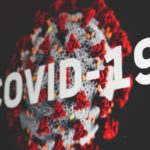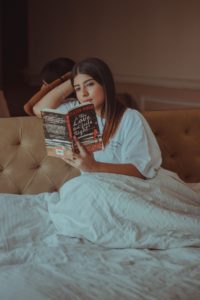 Protocols For Travellers Residing In Hotels Who Test Positive For Covid-19 Or Are Identified As Close Contacts Of Covid-19 Cases
Protocols For Travellers Residing In Hotels Who Test Positive For Covid-19 Or Are Identified As Close Contacts Of Covid-19 Cases
- Currently, most visitors entering Singapore are fully vaccinated, at lower risk of severe illness, and are able to recover on their own even if they test positive for COVID-19 after arriving in Singapore. Therefore, from 20 December 2021, travellers residing in hotels[1] who: (a) test positive for COVID-19 on a Polymerase Chain Reaction (PCR) test; (b) test positive for COVID-19 on an Antigen Rapid Test (ART); or (c) are identified as a close contact of a COVID-19 case and receive a Health Risk Warning (HRW), should recover or isolate in their hotel rooms by default.
- This will more closely align recovery protocols for visitors staying in hotels who test positive for COVID-19 with the protocols for local community cases.
Protocol for Travellers who Test Positive on a COVID-19 PCR Test 
- Travellers are currently required to remain in isolation after taking their on-arrival PCR test until they are notified of their test result. Those who are notified of their positive PCR test results while residing in a hotel should remain isolated in their rooms, notify hotel staff of their positive result, complete the FormSG at gov.sg/cplusform and await further instructions on their recovery procedure.
- Hotel guests will undergo recovery in their rooms by default. They will be issued an Isolation Order (IO) to remain in their accommodation for 10 days (if fully vaccinated) or 14 days (if unvaccinated or partially vaccinated) and will be automatically discharged without further tests thereafter.[2] The IO will supersede any testing requirements they may have originally been subject to (e.g. the enhanced testing regime for travellers on the Vaccinated Travel Lane). Hence, travellers under IO should not leave their room to undergo these tests.
- Hotel guests who have a place of residence in Singapore and wish to recover at home may seek hotels’ assistance to arrange for the Ministry of Health (MOH) to convey them to their accommodation.[3] They should not make their own transport arrangements.
- Those whose accommodations are unsuitable for isolation[4], who have medical or social conditions which pose a higher health risk[5], or who are severely ill, will be transferred to an appropriate care facility or hospital for recovery and will not recover in their hotel rooms.
- Individuals who are not already residing in hotels and test positive on a COVID-19 test (either PCR or ART) should not check into a hotel. If their household environment is unsuitable for home recovery, they should inform MOH which will arrange for their transfer to an appropriate care facility.
- In line with current home recovery protocols, telemedicine support will be made available to guests recovering in their rooms. Travellers will continue to be responsible for the costs associated with recovery, testing and treatment, including any necessarily extended stay in hotels or care facilities. Those who tested positive for COVID-19 or were issued an HRW before 20 December 2021, and who are already recovering in care facilities under previous protocols for travellers residing in hotels, will continue to serve out their isolation period there.
Protocol for Travellers who Test Positive on an ART
Travellers on VTL and those who have travel history in the last 10 days
- Travellers on the VTL who test positive on any of their mandatory daily ARTs[6], as well as all travellers who have travel history in the last 10 days and test positive on an ART, must undergo a confirmatory PCR test at a Combined Test Centre (CTC). They must self-isolate until they receive the results of their confirmatory PCR test. If the results are negative, they may go about their daily activities with no further isolation. If the results are positive, they should adhere to the protocols in paragraphs 3 – 8.
Travellers who are serving SHN
- There are currently no mandatory ART tests for those serving government-mandated SHN. Should travellers test positive on an ART while serving SHN, they should inform their hotel and undergo a confirmatory PCR test. If the results are negative, they may continue serving out the remainder of their stipulated SHN duration and take their exit-SHN PCR test. If the results are positive, they should adhere to the protocols in paragraphs 3 – 8.
Travellers who have already completed SHN and mandatory testing regimes[7]
- Travellers who test positive on an ART after completing their SHN and/or mandatory testing regimes should isolate where they are for the next 72 hours unless otherwise advised by their doctors. If they are residing in a hotel, they should also inform the hotel staff. After 72 hours, travellers may re-test with an ART and if the result is negative, they may resume normal activities. If they test positive, they should repeat their ART at least 24 hours apart and only resume normal activities once the result is negative. If they become unwell at any time, they should see a doctor and may take private transport to do so.[8]
- Should a traveller who tests positive on an ART wish to recover at an alternative residence in Singapore, he or she may take private transport to do so. [9]
Protocol for Travellers who Receive an HRW
- Those who receive an HRW should immediately isolate themselves in their room or place of residence and test themselves with an ART on the same day. The result of the first ART on Day 1 of the HRW should be uploaded onto gov.sg/agsubmit. If the test result is negative, they may proceed with normal activities for the day. They must continue to test ART negative each day before going out from Days 2 to 7. If they test ART negative on Day 7, they may cease further testing. If they test ART positive at any point of time, they should adhere to the protocols in paras 11– 12 of this press release. If they become unwell at any point, they should seek medical attention immediately.
- Travellers residing in the same hotel room as travellers who test positive for COVID-19 will similarly receive an HRW and should move to a separate place of accommodation (e.g. another room in the hotel) as soon as possible.[10]
Measures to Ensure Safety of Hotel Staff and Guests
- MOH and the National Environment Agency (NEA) have published a revised set of infection prevention and control (IPC) guidelines for hotels to minimise the risk of onward transmission. The protocols include guidelines on the appropriate Personal Protective Equipment (PPE), ensuring minimal direct contact with guests who have tested positive for COVID-19 and their belongings, and health precautions such as frequent cleaning and disinfection of spaces. All hotels are expected to abide by these guidelines.
- Hotel guests undergoing recovery or isolation in their rooms should exercise personal responsibility and adhere strictly to the stipulated isolation and testing protocols. They must not leave their rooms or use any shared facilities. If they require assistance, they may reach out to hotel staff or contact a telemedicine provider for medical advice. If any guests breach their IO by leaving their room, they will have committed an offence under the Infectious Diseases Act and may face enforcement action.
Heightened Measures for Omicron Variant
- These revised protocols for hotel guests are aligned with our management approach for the Delta variant. However, for confirmed and suspected cases of the Omicron variant and their close contacts, a differentiated approach will be adopted until more information is available on the Omicron variant. Suspected or confirmed Omicron cases will be conveyed to a designated care and isolation facility for recovery and will not undergo recovery in their hotel rooms. Close contacts of these cases will also be issued a Quarantine Order and will be quarantined at a designated facility.
They will undergo PCR tests at the start and end of their quarantine. To ensure the safety of guests and staff, hotels will engage in specialised cleaning by NEA-approved vendors for rooms occupied by suspected or confirmed Omicron cases and their close contacts.
Edited by: Stephen Morton
















